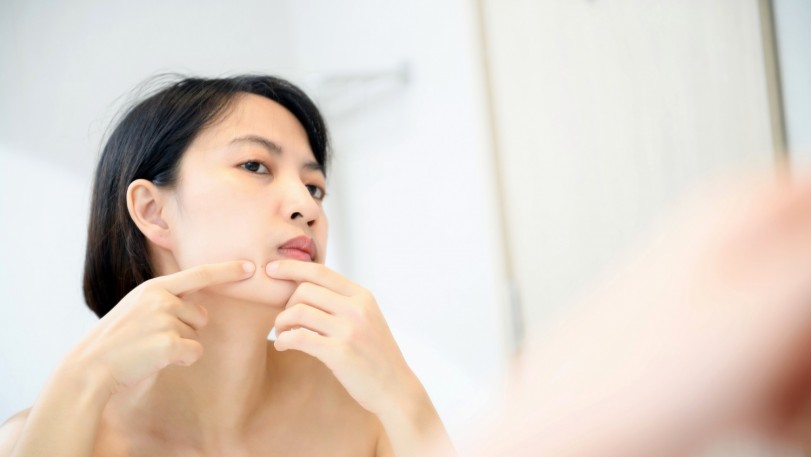
Blackheads are a common skin condition that affects areas like the face, neck, back, and chest. They are a type of acne characterized by open bumps filled with excess oil and dead skin. Despite their appearance, blackheads are not caused by dirt; instead, they result from clogged hair follicles and excess oil.
Factors like hormonal changes, increased sebum production, abnormal keratin formation, and bacterial presence can contribute to their development. While blackheads are not contagious, they can have psychological effects like anxiety and depression.
When do blackheads become problematic?
Complications from blackheads can arise if the pores become irritated or infected from squeezing or scratching. Bacteria can enter the pores, leading to inflammation and potentially causing acne. Inflammation can also occur if blackheads are left untreated.
Popping pimples can result in scarring, with scars often being pitted or darkened. Hyperpigmentation may develop as skin heals, leaving dark spots. Keloidal scars, raised and overgrown, can form from acne. Medications for blackheads or acne may have side effects like dry or irritated skin, which can be managed with moisturizers.
What to do
To treat blackheads effectively, it's crucial to avoid squeezing them, as this can lead to deeper issues like scarring and infection.
For mild cases, using salicylic acid-based products can help dissolve dead skin cells and clear pores. Some experts recommend retinoids because these are also effective in preventing clogged pores.
Chemical exfoliants like glycolic acid can be used at home to break down skin cell clusters. In more severe cases, prescription-strength retinoids or oral medications may be necessary.
It is important to moisturize to maintain skin balance, especially when using drying acne treatments.
For deep blackheads, it is best to seek professional extraction to avoid damaging the skin. Techniques like microdermabrasion, chemical peels, and laser therapy can also be effective in treating blackheads.
Preventing Blackheads
Preventing the occurrence of blackheads can be as simple as maintaining a habit of cleaning your face. Use noncomedogenic products to avoid clogging pores, and remove makeup before bed to prevent residue buildup.
Wash your hair regularly, and keep your hands and nails clean to minimize dirt transfer. Wash pillowcases and bedding weekly to remove oil and dirt.
Consider adding salicylic acid or glycolic acid to your skincare routine to prevent dead skin cells from clogging pores. Avoid overusing acne products as this could irritate your skin instead of clearing it up.
Lastly, take care of yourself from the inside. Start with a balanced diet, and stay hydrated for overall skin health.

